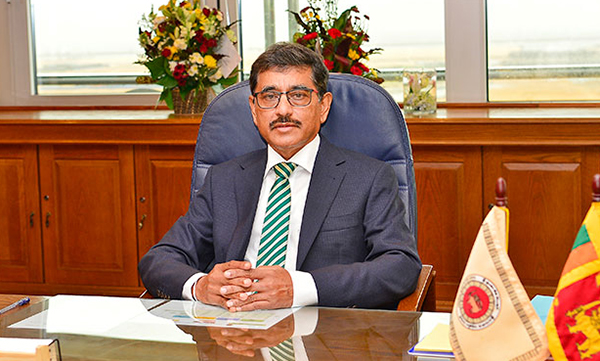News
CB Governor stresses on need to stay the course

By Rathindra Kuruwita
Governor of the Central Bank Dr. Nandalal Weerasinghe has said the government to be formed should also carry out the reforms that are in line with IMF recommendations.
“The two previous governments discussed with the IMF and wanted to carry out some reforms. If someone tries to divert from the path, the country will get into a deeper mess,” Dr. Weerasinghe said.
The Governor said that the next government must also carry out the reforms and guide the country out of the current economic crisis. He said it was not the time for experiments.
“People should also realise the situation the country was in. A new government could not resolve the economic crisis within a month.The people must be told what the real situation is and what needs to be done. There must be a consensus,” he said.
Dr. Weerasinghe said that given the current forex crisis it would be difficult to purchase adequate amounts of fuel, gas, and medicine.
“We need to manage our expenditure and I think we can maintain some sort of stability. If we keep on importing like this, we won’t have money to buy fuel and other essentials. I also hope that India will keep on helping us. If we get a large forex inflow, things will improve,” he said.
The CBSL Governor said that the continuation of the current political instability will prolong the economic crisis.
“We need to stabilise the macro economy with the help of the IMF. We need to restructure the debt. We need to have a finance minister and a Cabinet to take important decisions regarding these two. When we were talking to IMF, the government changed in May. Now it has changed again. The more this continues, the lengthier the economic crisis will be,” he said.
The CBSL Governor said that they were trying to ensure that there would be no hyperinflation. Inflation would reach 70% in the coming few months and that they have increased interest rates to control inflation.He said that increasing interest rates was the most powerful tool that the Central Bank had to control inflation, but reducing inflation was not something Central Bank could tackle alone.
“We can control the inflation that is created by demand. Right now, the inflation is also created by the high fuel prices, the rapid depreciation of the rupee, gas and fuel shortages. These are the main reasons for shortages. If the electricity bill goes up, inflation will be 70%. This can’t be controlled by interest rates again,” he said.
“If we go into hyperinflation the situation will be much harder than the one, we faced due to dollar shortages. If we go into hyperinflation, no business will be able to continue. We have seen what happens when countries go into hyperinflation. Its chaos and pain,” he said.
Thus, the main task of the Central Bank is to stop hyperinflation. As inflation increases it is mainly the poor, pensioners, and those with fixed incomes that will be most affected, he said.
“Hyperinflation will be bad for everyone. However, it will be worse for the categories I mentioned above. If that happens, there will be serious social issues too as people are laid off,” he said.